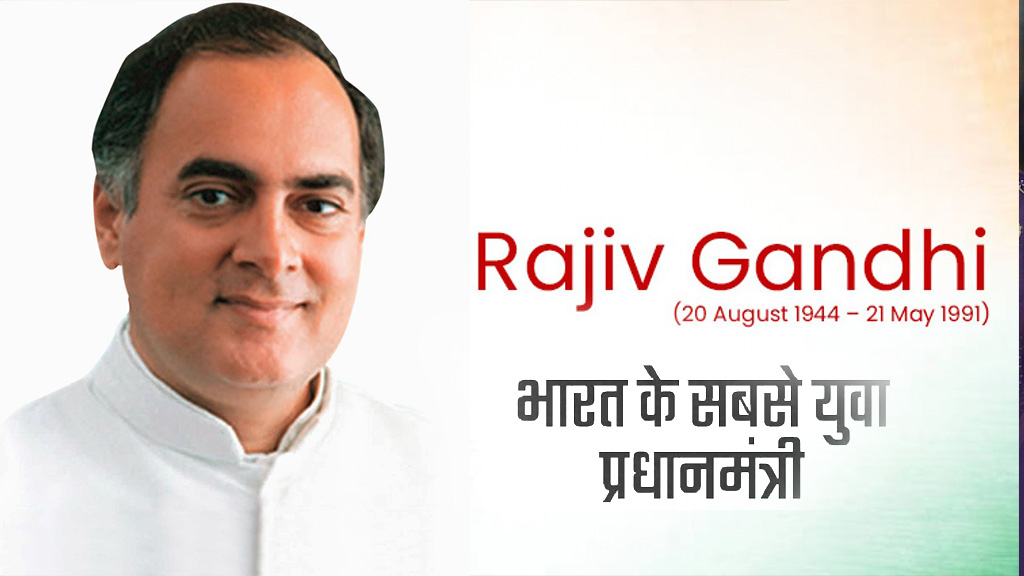Table of contents
Introduction
Rajiv Gandhi, born on August 20, 1944, in Mumbai, India, was an influential Indian politician and the sixth Prime Minister of India. He played a significant role in shaping the country’s politics and spearheading several initiatives that brought about significant reforms. This article delves into the life and accomplishments of Rajiv Gandhi, shedding light on his early years, political journey, tenure as Prime Minister, and his enduring legacy.Early Life and Education
Rajiv Gandhi was born into the prestigious Nehru-Gandhi family, known for its prominent role in India’s freedom struggle. His father, Indira Gandhi, was the first female Prime Minister of India, and his grandfather, Jawaharlal Nehru, was the first Prime Minister of India. Rajiv Gandhi received his early education at The Doon School in Dehradun and later pursued higher studies at the University of Cambridge in the United Kingdom.Political Journey
Rajiv Gandhi’s political career began in the 1980s when he campaigned for his mother, Indira Gandhi, during the general elections. Following the assassination of his younger brother, Sanjay Gandhi, in 1980, Rajiv Gandhi became more involved in politics. He won his first election to the Parliament in 1981 and quickly rose through the ranks of the Indian National Congress (INC).Prime Minister of India
In 1984, following the tragic assassination of his mother, Indira Gandhi, Rajiv Gandhi assumed the role of Prime Minister of India. At the age of 40, he became the youngest person to hold this prestigious position in Indian history. As Prime Minister, Rajiv Gandhi introduced several progressive policies, focusing on modernizing India and bringing it into the 21st century.Achievements and Reforms
During his tenure as Prime Minister, Rajiv Gandhi prioritized technological advancements and initiated the computerization of government offices, which laid the foundation for India’s IT revolution. He also emphasized education reforms, launched the Jawahar Navodaya Vidyalaya system, and implemented policies to empower women and marginalized communities. Additionally, he played a key role in facilitating peacekeeping efforts in Sri Lanka.Assassination
Tragically, on May 21, 1991, Rajiv Gandhi’s life was cut short by a suicide bombing during an election campaign in Sriperumbudur, Tamil Nadu. The assassination shocked the nation and left an indelible mark on Indian politics.Legacy
Rajiv Gandhi’s legacy is multifaceted and far-reaching. He is remembered for his vision of a modern and technologically advanced India. His contributions to education, especially the promotion of computer literacy, have had a lasting impact. Furthermore, his efforts in promoting peace and stability in the region continue to shape India’s foreign policy.Personal Life
Rajiv Gandhi married Sonia Gandhi, an Italian-born Indian, in 1968. They had two children, Rahul Gandhi and Priyanka Gandhi Vadra, both of whom have also played active roles in Indian politics. Rajiv Gandhi’s personal life was characterized by his deep commitment to his family and his dedication to serving the nation.Conclusion
Rajiv Gandhi’s life was a blend of privilege, tragedy, and dedication to public service. From his early days as a political campaigner to his tenure as Prime Minister of India, he left an indelible mark on the country’s political landscape. His focus on modernization, education, and technological advancements laid the foundation for a more prosperous and forward-thinking India. Rajiv Gandhi’s legacy continues to inspire future generations and his contributions to the nation will always be remembered.FAQs
Rajiv Gandhi’s major achievements as Prime Minister include introducing computerization in government offices, promoting education reforms, and initiating policies to empower marginalized communities. He also played a significant role in peacekeeping efforts in Sri Lanka.
Rajiv Gandhi emphasized technological advancements and introduced computerization in government offices, which paved the way for India’s IT revolution. His vision of a modern and technologically advanced India had a profound impact on the country’s development.
Rajiv Gandhi’s lasting legacy includes his contributions to education, computer literacy, and women’s empowerment. His efforts in promoting peace and stability in the region also continue to shape India’s foreign policy.
The Nehru-Gandhi family has played a pivotal role in Indian politics for decades. With Jawaharlal Nehru as the first Prime Minister of India and subsequent family members holding influential positions, they have had a profound impact on shaping the country’s political landscape.


